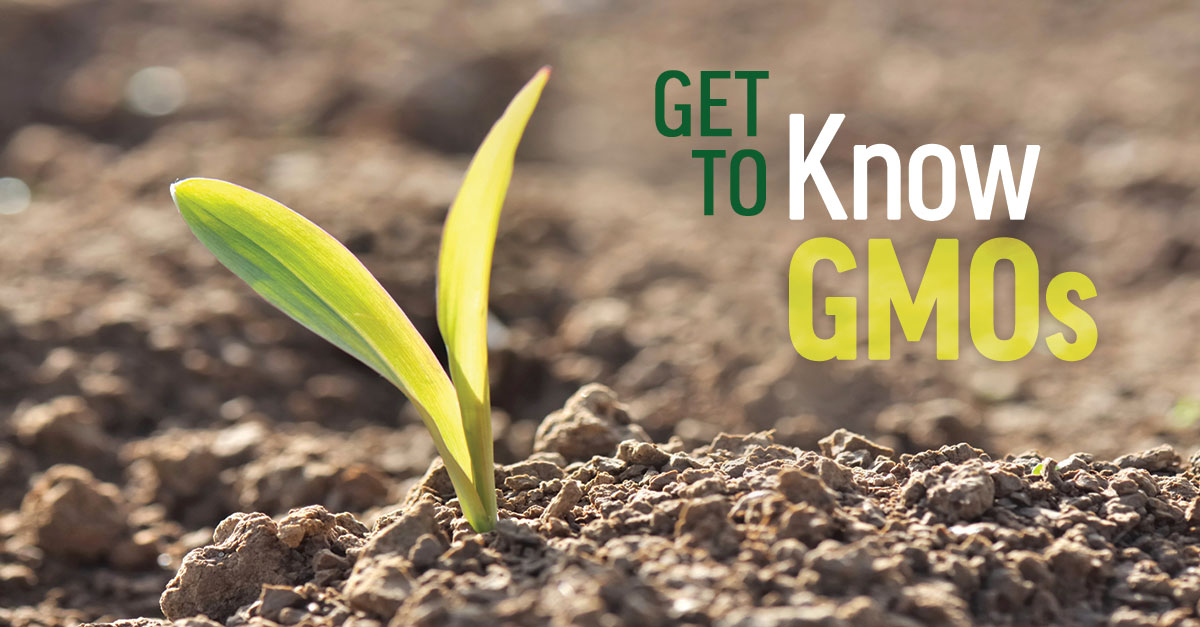Jumping Genes, Medicinal GMOs and Candid Scientists: What We’re Reading – September 2015
In September, GMO Answers read a number of compelling articles on GMOs. Here are a few that caught our attention.
GMOs Created By Nature
 Last spring, scientists found genes from bacteria in 291 sweet potato varieties, indicating that nature has been genetically modifying these crops for more than 8,000 years. In September, The Wall Street Journal reported on the discovery horizontal gene transfer in nature – genes “jumping” from one species to another - specifically butterflies with wasp genes.
Last spring, scientists found genes from bacteria in 291 sweet potato varieties, indicating that nature has been genetically modifying these crops for more than 8,000 years. In September, The Wall Street Journal reported on the discovery horizontal gene transfer in nature – genes “jumping” from one species to another - specifically butterflies with wasp genes.
“You realize that nature is creating genetically modified organisms all the time,” said Salvador Herrero, a geneticist at the University of Valencia, Spain, and co-author of the study. “It’s not so weird to transfer genes from one organism to another.”
Read more about the discovery of nature’s way of creating genetically modified organisms, and the implications of this for the GMO debate, at the Wall Street Journal.
GMO Labeling – A Personal Perspective
How much would GMO labeling cost? Why do they label GMOs in other places but not the U.S. and Canada? How does the government decide what gets labeled and what doesn't? Nurse Loves Farmer addresses some of the top questions about GMO labeling in her blog post, “GMO Labeling: Why or Why Not.”
GMOs aren’t just in the foods you eat. Some GMOs are even saving lives.
Did you know that genetic engineering was used to create today’s insulin? Currently, about five million Americans use GM insulin, and without GMOs, the demand for insulin would not be met.
“Not long ago, the insulin product that diabetics took to regulate diabetes came entirely from the pancreas organs of slaughtered pigs, cows or sheep. Sometimes this insulin caused allergic reactions. In the late 1970s and early 1980s, scientists developed a new form of insulin made by bacteria that had been given the human insulin gene with GMO methods. The approach raised various concerns not unlike those that have been raised with respect to GMO food. But in 1982, the Food and Drug Administration (FDA) approved it, making human insulin the first GMO medical product.”
Beyond insulin, GMOs are used to make the jeans you wear and the detergent they’re washed in, enzymes in your cheese, and even malaria and Ebola treatments. In Fortune, Robb Fraley explores the many different applications of GMOs outside of food in, “Surprise! GMOs aren’t just in the foods you eat.”
‘GMO-free’ – just a marketing ploy?
Many food companies are making changes in their ingredients and sourcing, to go “all natural” or “GMO Free.” But how much of these decisions are based on sound science and how much are based on popular marketing trends? Washington Post argues that GMO Free is a marketing ploy you shouldn’t fall for, citing that many current sourcing decisions have been made “directly in response to anti-science fear-mongering,” and reminding us that GMOs are not “a kind of food. Genetic modification is a way of making food -- and one that's been used, in various forms, for many years and to great success.” Read more at “Why ‘GMO-free’ is a marketing ploy you shouldn’t fall for” on Washington Post.
Scientists are speaking out and standing up for science.

U.S. Right to Know’s (USRTK) freedom of information act (FOIA) requests garnered a lot of press in September. In response to these requests, many scientists have spoken out publicly about this attempt to discourage experts from contributing to the dialogue with sound, fact-based research. We have also written about our support for the academic community and why we stand up for science here.
Why Stand Up for Science?
In his post, agricultural technology expert Steve Savage discusses the role academic scientists have played in guiding GE “safely to the market with unprecedented regulatory oversight” and explains what is at stake for the community of academic and university experts, beyond “some current or even future businesses of large companies”:
“We are motivated to explain a technology with vast, unrealized potential, much of which would be offered for free in the developing world, or commercialized in channels other than the current players.”
Read “Why Do Some Academic Scientists Stand Up For GMO Crops?” by Steve Savage on Forbes.
How to Attack a Public Scientist
On the NeuroLogica blog, Steven Novella explains in great detail how “ideologues will take the bad argument as total vindication” when he walks step-by-step through the FOIA requests of a number of public university scientists, including Dr. Kevin Folta, and the “paid disinformation campaign” that seeks to “successfully demonize GMOs and Monsanto and the agricultural industry.”
Industry and Political Organizations Can’t Change Scientific Evidence
Grist explores the question: Are scientists who collaborate with industry tainted? More specifically - when private companies reimburse scientists for travel, does it mean their scientific opinion and knowledge is invalid? Grist’s perspective:
“Collaboration with industry is part of the mission of many universities — it’s literally in the job description of many public scientists. Universities rely on industry funding, and a lot of important science throughout history came from private, rather than public, research. Plus, I’d rather have scientists wade into public policy — participating in political movements and working to communicate their research to the public — than hole up in ivory towers.”
Read the full Grist article here.
Hear from the experts themselves:
Dr. Kevin Folta provides a FAQ on these recent events on his blog. He describes his relationship with Monsanto, expands upon travel reimbursements, and discusses his work here on GMOAnswers.com. Read Dr. Folta’s FAQ on his blog, Illumination.
Bruce Chassy is also among one of the scientists served with the FOIA request. On Academics Review, he shares his thoughts on the current assault on his 40-plus years of public science, teaching, and research, and shares, “I am proud to stand up my professional relationships to such scrutiny as serving the best interests of my academic science and role as a public-sector educator.” Read his full post on Academics Review.
Alison Van Eenennaam, also targeted by USRTK, speaks out in support of Kevin Folta and other scientists. She provides a sound critique and important context on the FOIA requests:
“Initially, according to USRTK, the demands targeted only researchers who have written articles posted on GMO Answers, a website backed by food and biotechnology firms. I did volunteer to answer some questions on that site about animal feeding studies for no pay on my own time. I am committed to science communication in as many forums as possible. However, it quickly became clear that citing GMO Answers was not Ruskin’s real motivation, as many of those targeted at UC and around the country had never written for that site. When confronted with this fact, Ruskin acknowledged that he requested documents from the scientists with no connection to GMO Answers because they made public statements opposing California's 2012 GM food labeling proposition, which was defeated. ”
Read Alison’s full post on Science 2.0.
These are some of the articles about GMOs, biotechnology and standing up for science that caught our attention in September - did we miss anything? Share links to your favorite posts on our Facebook page!
October is Get to Know GMOs Month!
 Check out articles posted each week that will dive deeper into what GMOs are, clarify the most common questions about GMOs and address concerns and misconceptions about GMOs.
Check out articles posted each week that will dive deeper into what GMOs are, clarify the most common questions about GMOs and address concerns and misconceptions about GMOs.
Get started with the first post in the series, "What is Get to Know GMOs Month?"



